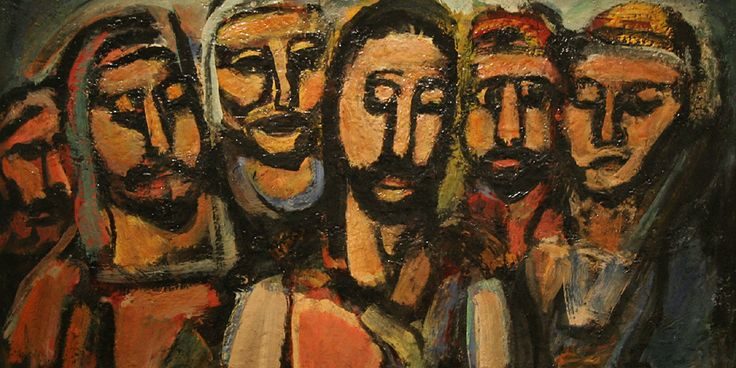
Getting All the Good Things In: The Puritans on the Good Source, Effects, and Benefits of Holiness
The new issue of  Credo Magazine has been recently released: Holiness. The following is an excerpt from Jenny-Lyn de Klerk article, Getting All the Good Things In: The Puritans on the Good Source, Effects, and Benefits of Holiness. Jenny-Lyn de Klerk is the Puritan Project Assistant at Regent College in Vancouver, Canada (follow her on Instagram @puritanjenny) and a contributor at historicaltheology.org. She is currently working on a PhD in historical theology at Midwestern Baptist Theological Seminary (Kansas City, MO) and blogs at jennylynsandra.wordpress.com. She and her husband JD are members of Richmond Alliance Church, where JD serves as the Associate Pastor.
Credo Magazine has been recently released: Holiness. The following is an excerpt from Jenny-Lyn de Klerk article, Getting All the Good Things In: The Puritans on the Good Source, Effects, and Benefits of Holiness. Jenny-Lyn de Klerk is the Puritan Project Assistant at Regent College in Vancouver, Canada (follow her on Instagram @puritanjenny) and a contributor at historicaltheology.org. She is currently working on a PhD in historical theology at Midwestern Baptist Theological Seminary (Kansas City, MO) and blogs at jennylynsandra.wordpress.com. She and her husband JD are members of Richmond Alliance Church, where JD serves as the Associate Pastor.
That the Puritans were known for their emphasis on holiness is no surprise; they were branded by this pejorative term because others perceived them as holier-than-thou types who walked around with their noses turned up, pointing their fingers at sinners and making ridiculous rules against good things. Though this stereotype persists today among churchgoers, students, and even professors, it no longer holds any weight in the world of Puritan scholarship. One of the leading defenders of the Puritans, J. I. Packer, explains in A Quest for Godliness that the Puritans developed a holistic lifestyle that centered around holiness “not so much to keep bad things out as to make sure that they got all good and important things in” (24). Thus, one way the Puritans can help Christians today mature in their understanding and practice of holiness is by showing how holiness is not primarily a negative or limiting thing that drags one down to an ignoble existence in the depths of despair, but primarily good in its source, the attitudes and actions it results in, and even the personal and communal benefits it brings.
Holiness Comes From a Good God
First, holiness comes from God, who is good. In The Crown and Glory of Christianity, or, Holiness, the Only Way to Happiness Thomas Brooks explains, “God is essentially holy, and in this sense, none is holy but himself . . . Holiness in God is not a quality but his essence.” (4:392–393). God is holy in that he is both transcendent (i.e., in a separate category from creation), as well as morally pure. Thus, Brooks further describes, “God is so holy, that no iniquity can be found in him; there is no defect nor default in the nature of God” (4:393). The best way to understand how we can be holy is by looking at Christ. Click To Tweet
Though we cannot be holy like God in his transcendence, we must be like him in his moral purity since he commands it. The best way to understand how we can be holy is by looking at Christ. First, we are connected to divine holiness through our union with Christ, who is God incarnate. Second, we are given an example of how to be holy as human beings since Christ is fully or truly human and perfectly obeyed the law. God does the first by the power of the Holy Spirit, and this enables us to do the second with the Spirit’s help.
Read Jenny-Lyn de Klerk’s entire article in the new issue of Credo Magazine.

